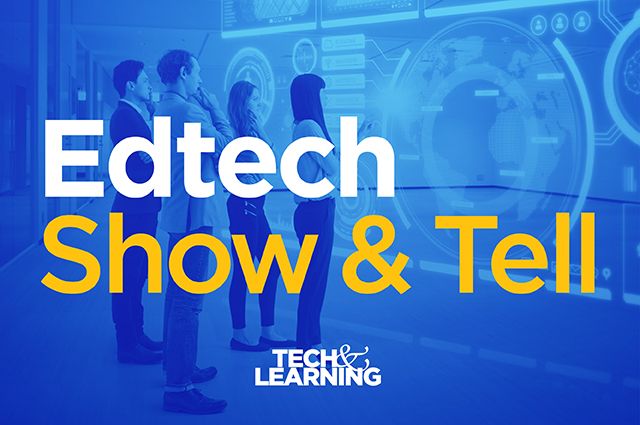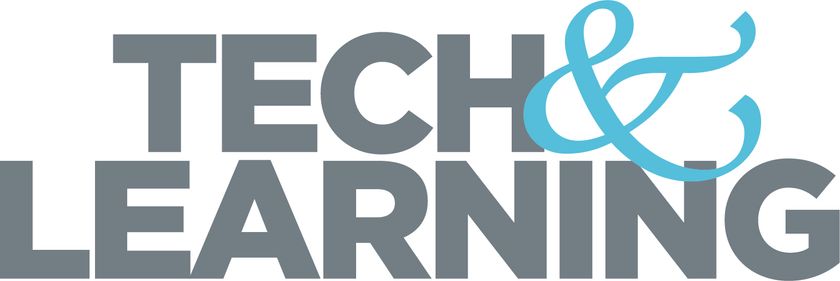AI, Absenteeism, Cybersecurity, and More at the Tech & Learning Regional Leadership Summit in New England
Forward-thinking educators collaborated during a day of information sharing, fact finding, and a bit of entertainment at the Tech & Learning Summit in Boston.
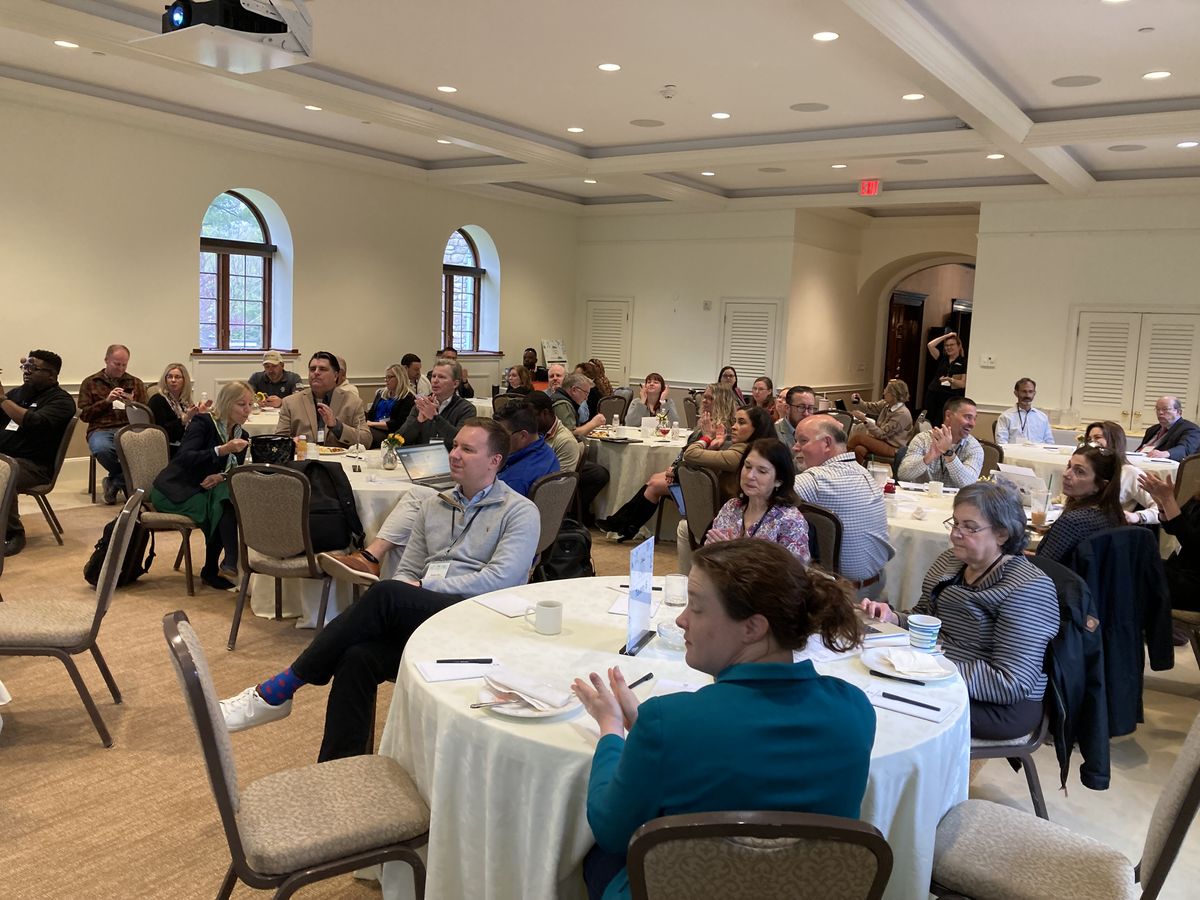
The Tech & Learning Regional Leadership Summit is a unique opportunity for educators from various backgrounds to come together for a collective purpose: to find uncommon solutions to common challenges. Educational leaders not only have the chance to network as well as innovate and create solutions, they also are given a voice to share strategies they have tried in their schools or districts.
The Connors Center in Dover, Massachusetts, provided a beautifully lush backdrop of trees and grass that held fast against the ongoing conversation between educators, edtech partners, and other attendees about the advent of technology in schools. As part of a professional learning experience, those in attendance were tasked with creating an action plan based on the various activities they would take part in throughout the day.
Getting Our Feet Wet
Throughout the summit, there was a concentrated focus on AI, which was bolstered by a fearless and entertaining introduction made by Carl Hooker, the emcee for the event. After being split into teams, attendees were tasked with coming up with a two-minute presentation that encapsulated one action plan to be incorporated in the next school year.
Throughout the day, while some attendees made time for one-on-one meetings with vendor partners, others participated in roundtable discussions based on common educational challenges that were facilitated by experts in multiple fields.
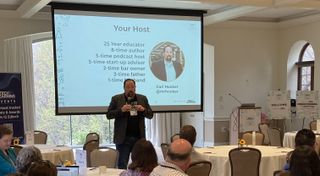
The roundtable talks covered subjects that impacted educators, students, and parents, and included:
- AI Media and Literacy
- Personalized Learning Coaching
- Creating a Personal Wellness Plan
- Integrating Technology into the MTSS Structure
- PD In the Age of AI
- Addressing Chronic Absenteeism
- Data Privacy and Cybersecurity
Chronic Absenteeism Prevention
An in-depth conversation about chronic absenteeism was led by Michael Hale, Director of College, Career, and Citizenship at Casco Bay High School in Portland, ME. Hale divulged the alarming rate at which high school students who miss school regularly are prone to miss graduation: 30%! Hale also elaborated on other potential detrimental effects of chronic absenteeism, such as diminished health and low future employment prospects.
In order to address the issue of chronic absenteeism, Hale discussed how his district employs a multi-tiered support system designed to help and incentivize regular attendance for students. The system involves support, prevention, and intervention if necessary, designed to help eliminate obstacles keeping students from attending school.
Tech & Learning Newsletter
Tools and ideas to transform education. Sign up below.
Implementing AI Across a District
Kerry Gallagher, Assistant Principal of Teaching and Learning for St. John's Prep in Danvers, MA, and Kelley Papa, Instructional Coach at St. John’s Prep, discussed how their district prepared a comprehensive plan to integrate artificial intelligence in a way that helps foster an accepting culture among students, teachers, and parents. The process acts as a cycle that will constantly gauge the opinions of all participants to know what direction to take with AI.
Gallagher presented an action plan that worked with existing school policy. The plan is designed to evolve as the needs of the students and educators evolve. The main idea behind the process is not only to educate students, teachers, and parents on the potential of AI, but also to demystify AI from the established reputation it garnered through early media coverage. Approaching AI with understanding makes its use more palatable, and Gallagher and Papa have paved the way for a roadmap for the ever-changing landscape AI in education.
Gamifying Schools, Looking Forward to What’s Cool
Dan Ryder, Director of Design and Innovation for Community Regional Charter School, presented a game-based and human-centered problem-solving model to help reimagine how to tackle educational challenges. The presentation was accompanied by a brief activity in which participants divided groups of two, learned about game-play styles, and ultimately, each created a game that their partner would enjoy playing.
After the presentation, attendees were given the opportunity to get an advanced look at cutting-edge technology companies. This provided some quality time with industry innovators to get a glimpse of what the future of educational technology could look like.
Artificial Amateurs are Absolutely Amazing
Once the day reached its final moments, the original teams organized at the beginning of the summit reconvened and, equipped with the knowledge gained throughout the day, created endearing proposals for introducing AI to a school. Some groups had used AI tools to craft and sing unique songs about the benefits of students and teachers using AI. Other groups used AI to create artworks to emphasize the helpfulness of artificial intelligence.
Innovative and Celebrated
After the team presentations, Tech & Learning recognized the innovative leaders in attendance for their achievements. The Innovative Leader Award winners were:
Innovative District Instructional Tech Specialist: Russell Levendusky
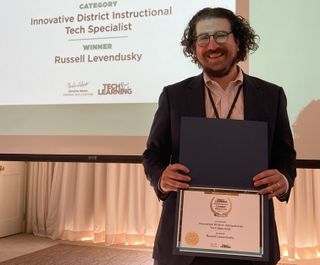
Innovative Director of Design and Innovation: Dan Ryder
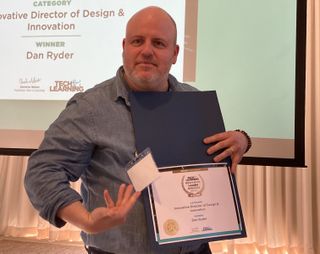
Innovative Assistant Principal: Kerry Gallagher
Best Example of Virtual Learning: Jacqueline Gardy
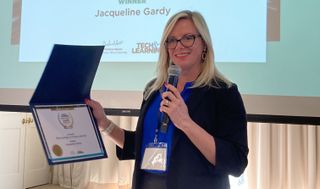
Tech & Learning Regional Leadership Summits offer a wonderful opportunity to collaborate with passionate educators from across the nation. Whether organizing unique solutions to complex and ongoing challenges, or being on the cutting edge of the edtech space, the connections made and time spent here become indispensable in helping to further educational endeavors for students, teachers, and parents.

Michael Millington is a senior staff writer for Tech & Learning. A writer and editor with over a decade of experience, his focus on bringing actionable information to those in need is the driving force behind his work. When not researching new advancements in technology, Michael likes to practice his Italian and train his dog Cyril.

